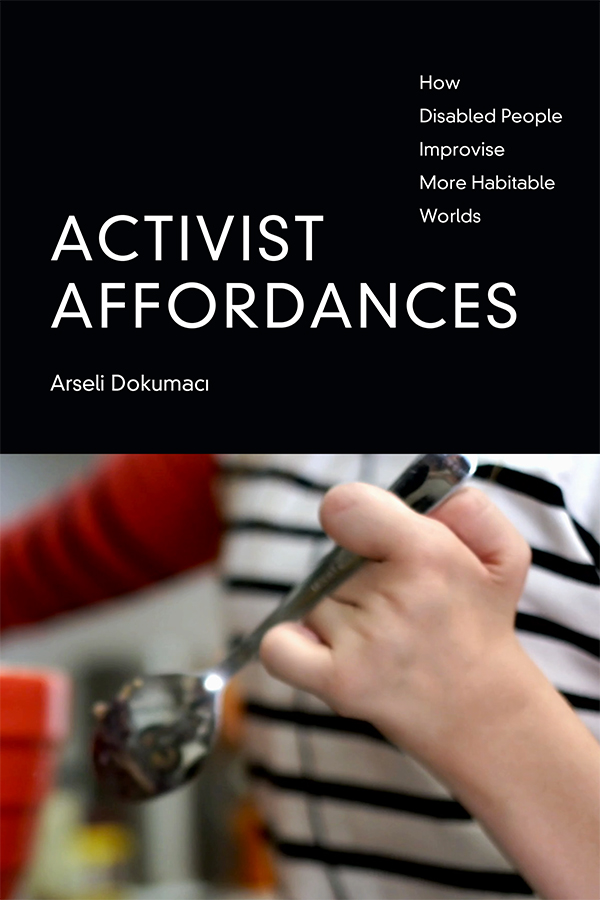Activist Affordances: How Disabled People Improvise More Habitable Worlds by Arseli Dokumacı builds upon theories of affordances through the concept of “activist affordances,” which describes the “performative microacts/-arts through which disabled people enact and bring into being the worlds that are not already available to them, the worlds they need and wish to dwell in” (5). Activist Affordances takes a non-Westernized view of disability that makes room for the complexities of pain, illness, and the nonhuman world. Dokumacı’s Activist Affordances is a necessary and fresh expansion of disability—beyond the Western conception of the term—that encompasses the disablement of other species in order to resist human exceptionalism, and to better address the destruction colonization, racialization, and capitalism has wrought on the earth and its inhabitants. Activist Affordances is a widely applicable piece of scholarly literature that offers strategies for survival in our increasingly precarious world.
Articles by Emalee Crews
Emalee Crews is a Cultural Studies PhD student at UC Davis. They are a queer disabled activist and student who explores the intersection of food sovereignty, food justice, critical disability studies, and crip futurity. Their work aims to build a nuanced understanding of queer/crip theory, food justice movements, and the cultural, psychological, and emotional connections communities form with food in order to construct sustainable food justice platforms for disabled people. They integrate decoloniality, anti-capitalism, theories of care, anarcho-mutual aid traditions, and spiritual wellness to understand the systems of oppression that limit access to food justice systems and traditional, cultural, natural, and/or unprocessed foods for disabled bodyminds.
